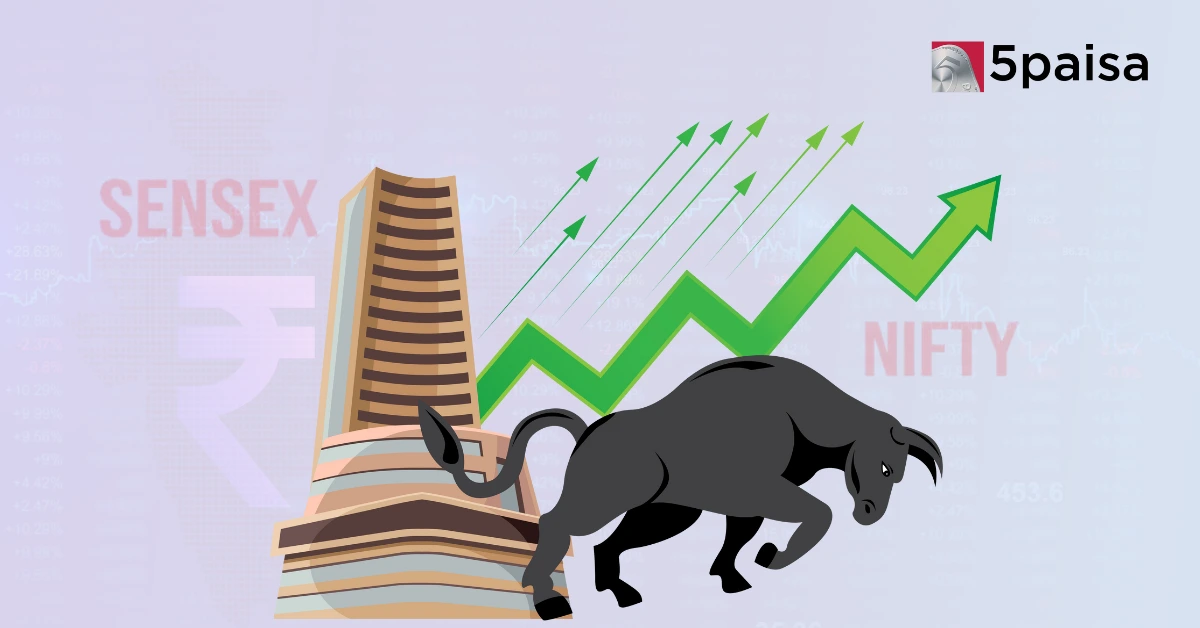iThe current values are delayed, open demat account for live values.
Nifty 50
Nifty 50 Performance
-
Open
24,185.40
-
High
24,242.60
-
Low
24,072.00
-
Prev Close
24,125.55
-
Dividend Yeild
1.28%
-
P/E
21.97
Nifty 50 Chart

Nifty 50 F&O
Nifty 50 Sector Performance
Top Performing
| Sector Name | Percentage Change |
|---|---|
| Diamond, Gems and Jewellery | 0.72 |
| Leather | 2.72 |
| Ceramic Products | 1.32 |
| Healthcare | 0.68 |
Under Performing
| Sector Name | Percentage Change |
|---|---|
| IT - Hardware | -0.69 |
| Oil Drill/Allied | -2.58 |
| Ship Building | -0.82 |
| Insurance | -0.06 |
Color code for Stocks Performance
- 5% and above
- 5% to 2%
- 2% to 0.5%
- 0.5% to -0.5%
- -0.5% to -2%
- -2% to -5%
- -5% and below
Constituent Companies
| Company | Market Cap | Market Price | Volume | Sector |
|---|---|---|---|---|
| Asian Paints Ltd | ₹233450 Cr |
₹2432
(1.37%)
|
1250510 | Paints/Varnish |
| Cipla Ltd | ₹123412 Cr |
₹1528.2
(0.85%)
|
1662493 | Pharmaceuticals |
| Eicher Motors Ltd | ₹158597 Cr |
₹5784
(0.88%)
|
506518 | Automobile |
| Nestle India Ltd | ₹232044 Cr |
₹2407.3
(1.34%)
|
785630 | FMCG |
| Grasim Industries Ltd | ₹187088 Cr |
₹2749.4
(0.35%)
|
638012 | Textiles |
About Nifty 50
Nifty 50 is a benchmark index of the National Stock Exchange of India which consists of top 50 blue chip companies listed on National Stock Exchange of India Ltd. (NSE). The 50 stocks are selected on the basis of liquidity and market capitalization. The Nifty 50 is an important tool for investors looking to invest in India's stock market. Nifty 50 consists of companies belonging to major sectors of the Indian economy and insight into the performance of the Indian economy and provides investors with valuable information about which sectors to invest in. The index is calculated based on free-float market capitalization, which means that only companies with a high float adjusted market cap are selected. Additionally, the Nifty 50 also has a diverse selection of stocks from various sectors such as banking, automotive, energy, and IT.
By tracking the movements of this index, investors can gain insight into the trends and performance of Indian companies on a larger scale. The Nifty 50 also serves as an indicator of investor sentiment, allowing them to gauge how markets may perform in the future.
Other Indices
| Indices Name | Price | Price Change (% change) |
|---|---|---|
| India VIX | 15.23 | -0.29 (-1.87%) |
| Nifty 10 Yr Benchmark G-Sec | 2569.75 | 1.96 (0.08%) |
| Nifty 10 Yr Benchmark G-Sec (Clean Price) | 916.62 | 0.53 (0.06%) |
| Nifty 100 | 24770.45 | 44.65 (0.18%) |
| Nifty 100 Alpha 30 Index | 17232.15 | 43.05 (0.25%) |
Faqs
How To Invest in Nifty 50 Stocks?
You may invest in Nifty 50 stocks as below:
1.Invest directly in Nifty 50 shares in the same proportion as the index.
2.Investment in an index mutual fund based on Nifty 50. An index fund allows you to invest in a customized portfolio managed by specialists.
What are Nifty 50 stocks?
Nifty 50 stocks represent the 50 most significant and liquid stocks on the National Stock Exchange of India, serving as a benchmark index for Indian equity markets. They span various sectors, reflecting the overall market conditions.
Can you trade shares on Nifty 50?
Yes, you can trade shares on the Nifty 50. This index comprises publicly listed companies, and their shares can be bought and sold on the NSE during trading hours.
In which year was the Nifty 50 Index launched?
The Nifty 50 Index was launched in 1996. It was introduced by the National Stock Exchange of India as a benchmark stock market index representing the weighted average of 50 of the largest Indian companies listed on the exchange.
Can we buy Nifty 50 and sell it tomorrow?
Yes, you can buy Nifty 50 futures or options today and sell them tomorrow. This is a common trading strategy, allowing traders to capitalize on short-term movements in the index.
Latest News

- Apr 22, 2025
The SBI Income Plus Arbitrage Active FOF - Direct (G) is an open-ended fund of fund scheme designed for investors seeking regular income and long-term capital appreciation. This fund invests in a mix of actively managed debt-oriented mutual funds and actively managed arbitrage mutual funds, providing a balanced exposure to both fixed income and equity arbitrage opportunities. The scheme follows a diversified approach while actively managing interest rate and credit risk.

- Apr 22, 2025
Motilal Oswal Infrastructure Fund is an upcoming open-ended equity scheme that follows a thematic investment approach focused on India's infrastructure sector. The fund seeks to achieve long-term capital appreciation by primarily investing in equities and related instruments of companies involved in or benefiting from the growth of infrastructure, including power, roads, ports, railways, shipping, and utility services.
Latest Blogs
Choosing the right Systematic Investment Plan (SIP) is one of the smartest ways to build long-term wealth, but with countless options available, how do you know which SIP is best for you? The right SIP plan aligns with your financial goals, risk appetite, and investment horizon while offering optimal returns.
- Apr 27, 2025

Stock Market Outlook for April 22: Potential Flat-to-Positive Opening: Gift Nifty potentially hints at a flat opening for Indian markets, trading just 0.01% higher at 24,180.5, following a mildly positive close. Weak Global Cues: European indices ended lower, with the DAX, CAC 40, and STOXX 50 down over half a percent, signaling cautious global sentiment amid geopoli
- Apr 22, 2025

